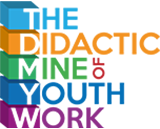Social enterprises, like youth work, are fundamental for community growth and addressing social challenges at a local level. These enterprises bring the lessons and techniques of a youth work-oriented approach into an economic dimension.
Real Problems, Concrete Solutions:
Social entrepreneurship arises from real problems and stands as a concrete solution to community needs. It demonstrates a possible alternative, serves as an example, and paves the way for addressing other social challenges. In this manner, it spreads a sense of community and trust in society and business entities, similar to youth work.
This is particularly evident in social enterprises where the social impact extends to choices related to staffing. For instance, young people, NEET individuals, and people with disabilities find different placements in society through job positions, fostering a sense of active participation.
Fostering Active Participation and Inclusion
These enterprises operate on two levels: individuals gain immediate benefits, and they contribute to reducing taboos and prejudices regarding the inclusion of vulnerable groups in the workforce.
By showcasing the effectiveness of these choices and the abilities of the hired staff, these enterprises become shining examples for other entrepreneurs. In short, they take a small step to revolutionize the entire world of work.
Collaborative Networks in Social Enterprises
Another characteristic of social enterprises is their ability to network and create partnerships, which depend on the type of enterprise and work towards common goals or address similar social challenges.
This collaborative approach, reminiscent of youth work, involves cross-disciplinary planning, showcasing a working model based on exchange and collaboration rather than mere competition.
Strengthening Sustainability
Like youth work, the ability to question oneself, share perspectives, and strive for a collective vision strengthens the sustainability and inclusiveness of the enterprise. This encourages conscious work and facilitates the landing of new ideas.
Furthermore, this collaborative approach helps develop ideas, increases performance chances, identifies and addresses critical issues, fosters a sense of belonging and teamwork, and allows employees to improve their skills through dialogue with others.
This, in my opinion, is the only way to address the complex challenges society faces today, such as ecological transition, the rise of NEET, urban poverty, marginalization of the weak or disabled, and difficult working conditions for the youth population.
Youth Work as a Pathway to Social Entrepreneurship
Moreover, youth work often serves as an excellent pathway to social enterprise. As demonstrated by testing activities for the Didactic Mine ebook, it can instil newfound confidence in participating youth, making them feel capable of reasoning previously considered inaccessible. It brings them closer to entrepreneurship, aids in civic participation, develops a sense of belonging to a community (key elements in creating a social enterprise), and enhances critical thinking.
Additionally, it plays a crucial role in fostering creativity. Engaged youth readily accept challenges, indulge their imaginations, and put themselves into tasks confidently. The result is not always fanciful; having internalized entrepreneurial thinking, they propose solutions with excellent potential for development, effectively addressing challenges faced by both individuals and society in general.
The Transformation to Social Enterprises
As their understanding of society and entrepreneurship deepens, the gap between their ideas and their realization diminishes. These ideas, often valuable resources for society, can seamlessly transform into social enterprises.
Youth Work as Training Ground for Future Social Entrepreneurs
Therefore, youth work can be seen as a form of training for future social entrepreneurs, representing a crucial resource to address society’s challenges, particularly at the local level and over the long term. It promotes a new working model where everyone works towards the same goal and is an integral part of the project.
Sara Settembrini
Cinisello Balsamo

